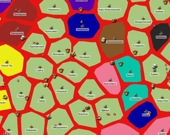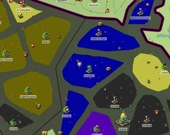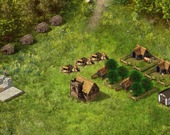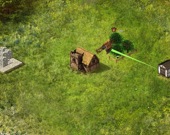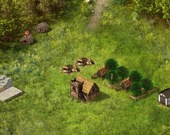Stronghold Kingdoms Game Review
Genres like role-playing games or shooters can easily move online. But to make a sensible MMORTS, i.e. massively multiplayer real-time strategy, is a very difficult task. But Firefly studio still took up the challenge to release an online version of the famous strategy game by 2012. In Stronghold Kingdoms you play as a lord, obliged to develop and defend your possessions. Only, unlike other games of the series, here everything happens slower, and on the map there are hundreds of feudal lords, fighting among themselves or creating alliances. The developers' idea was successful enough that the game, despite its simple graphics and complex interface, has remained relevant to this day. Let's find out what it can attract modern gamers.
First acquaintance
The name Stronghold is familiar to every strategy fan. The first game of the series was released back in 1993, but the greatest fame was gained by two releases with the subtitle Crusader, as well as the second numbered part. With the third, which saw the light of day in 2011, Firefly Studios did not do well at all - it was criticized in a puff of smoke. Nevertheless, it is already clear that we are talking about a large and appreciated by many franchise, so the online version did not arise out of thin air. And although the developers had to rethink the basic mechanics to adapt everything to the MMO rules, the Kingdoms style is immediately recognizable. Pseudo-three-dimensional graphics with detailed buildings, but rough animation, music with Catholic choir in medieval style, a lot of tabs, numbers with resources, virtual assistant calling you my lord - everything is so familiar, as if you had returned to your home after a long absence.
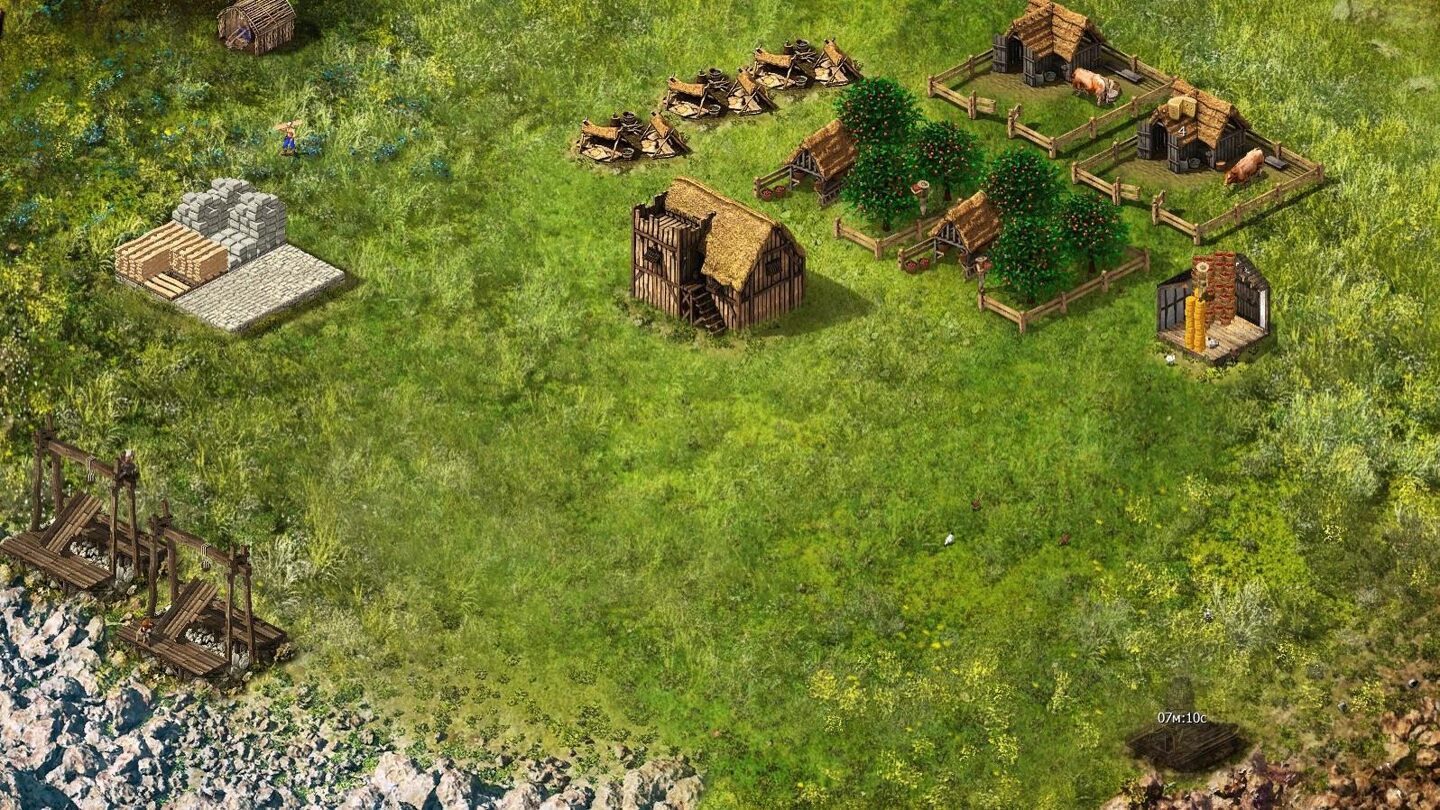
You will be the ruler of the feudal domains. You can choose your own land by studying the world map (it repeats the real one, with all the countries) or by blind chance. At first things are small: the player has at his disposal a village for economic activities, as well as a castle, available in a separate tab. Or rather, the castle is just a name - it's just an area to be enclosed with fences and then with a stone wall, if the necessary technologies and enough resources are available. Villagers are sent to cultivate gardens, milk cows, chop pine trees and cut stone. At the start, you can't speed up the economy too much, because you have only four workers under your command, and new ones arrive very slowly - you have to wait for the fifth one for about two hours of real time.
And when a settler reaches your lands, he must be provided with a roof over his head, food and entertainment, otherwise the nobles will start a rebellion. Buildings that create jobs also grow slowly. Everything here is organized as in any RTS. Once you've accumulated enough resources and received a blueprint, you simply order construction. But if in the single-player game it happens instantly, Kingdoms offers to wait. Special cards with bonuses help to speed up the process - they are displayed in the interface on top. Activating one such card, you can, for example, get a boost to stone mining, another will spur the development of animal husbandry, a third will give a boost to the workers, and a fourth will cheapen the troops. There are hundreds of them in the game, and they are allowed to both earn and buy for virtual or real currency.
And when a settler reaches your lands, he must be provided with a roof over his head, food and entertainment, otherwise the nobles will start a rebellion. Buildings that create jobs also grow slowly. Everything here is organized as in any RTS. Once you've accumulated enough resources and received a blueprint, you simply order construction. But if in the single-player game it happens instantly, Kingdoms offers to wait. Special cards with bonuses help to speed up the process - they are displayed in the interface on top. Activating one such card, you can, for example, get a boost to stone mining, another will spur the development of animal husbandry, a third will give a boost to the workers, and a fourth will cheapen the troops. There are hundreds of them in the game, and they are allowed to both earn and buy for virtual or real currency.
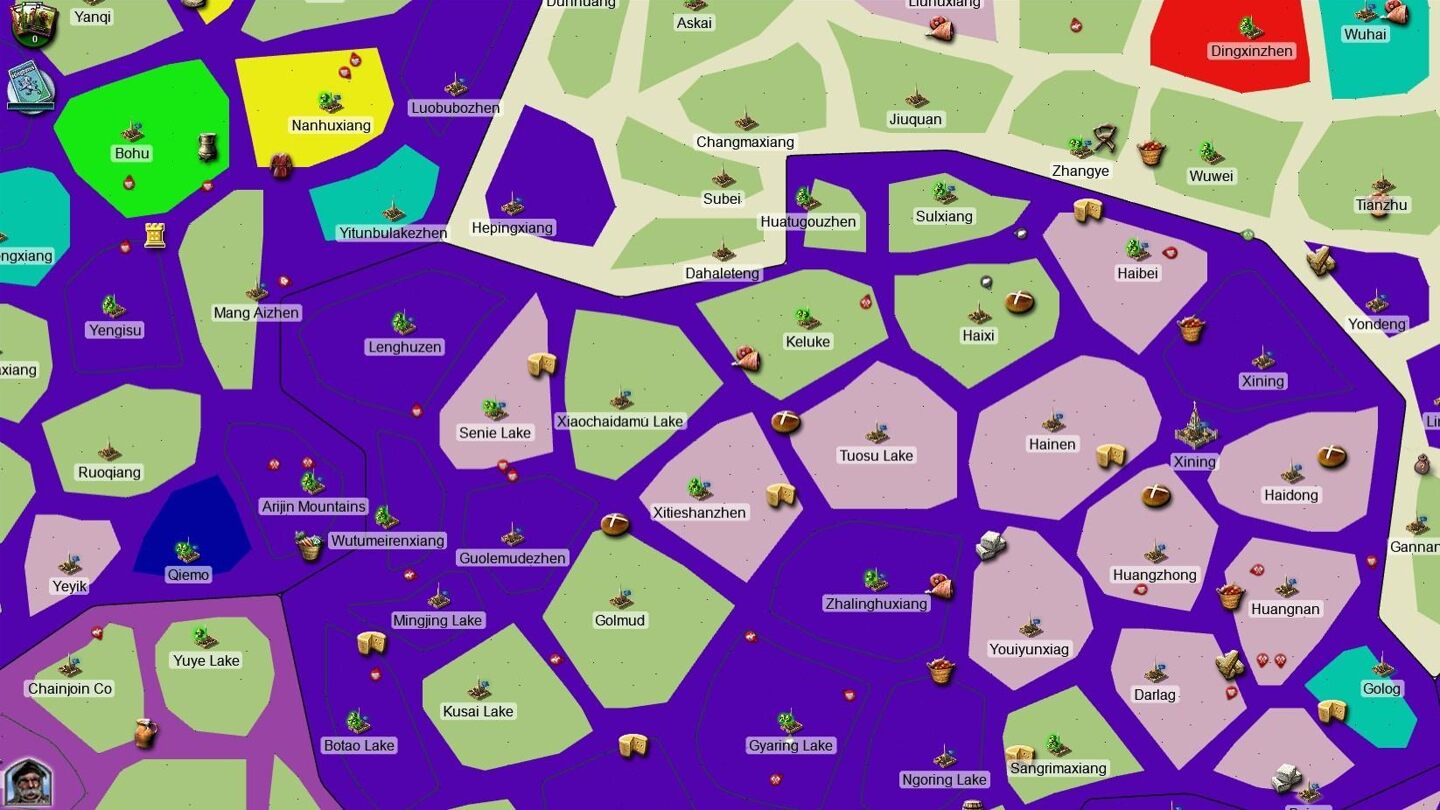
Everything important is displayed in the tabs on the right. Here you can switch between three main views: the global map is needed for raiding neighbors and assessing threats, the village plan helps in economic development, and the castle is a window where you can see all fortifications and enemies, if they have got under the walls. There are more tabs with available troops, resource charts, diplomacy options, trade and a list of vassals - here you can take under your patronage other players or enter the service itself, so that a more experienced user did not give in offense. A huge role in the development is given to the research tree, which works in the manner of the usual discovery of technology in any strategy. It is here that you determine the path that will make a semi-literate peasant a noble landowner.
Research is divided into four industries. You can invest in industry to produce more wood, stone, tools and weapons. The Military Crafting branch is responsible for fortification and for the abilities of the troops under your command - there is nothing to prevent you from pumping up intelligence, damage in battle, effectiveness of raids, size or speed of the army through training. Farming" contains agricultural technologies (here you can increase milk yield of cows and yield of apple trees), and "Education" has all kinds of educational activities with a focus on theology, math or aesthetics. The latter comes in handy for decorating possessions so that the subjects feel better about their lord. At the same time, such buildings bring honor points, i.e. political influence.
Research is divided into four industries. You can invest in industry to produce more wood, stone, tools and weapons. The Military Crafting branch is responsible for fortification and for the abilities of the troops under your command - there is nothing to prevent you from pumping up intelligence, damage in battle, effectiveness of raids, size or speed of the army through training. Farming" contains agricultural technologies (here you can increase milk yield of cows and yield of apple trees), and "Education" has all kinds of educational activities with a focus on theology, math or aesthetics. The latter comes in handy for decorating possessions so that the subjects feel better about their lord. At the same time, such buildings bring honor points, i.e. political influence.
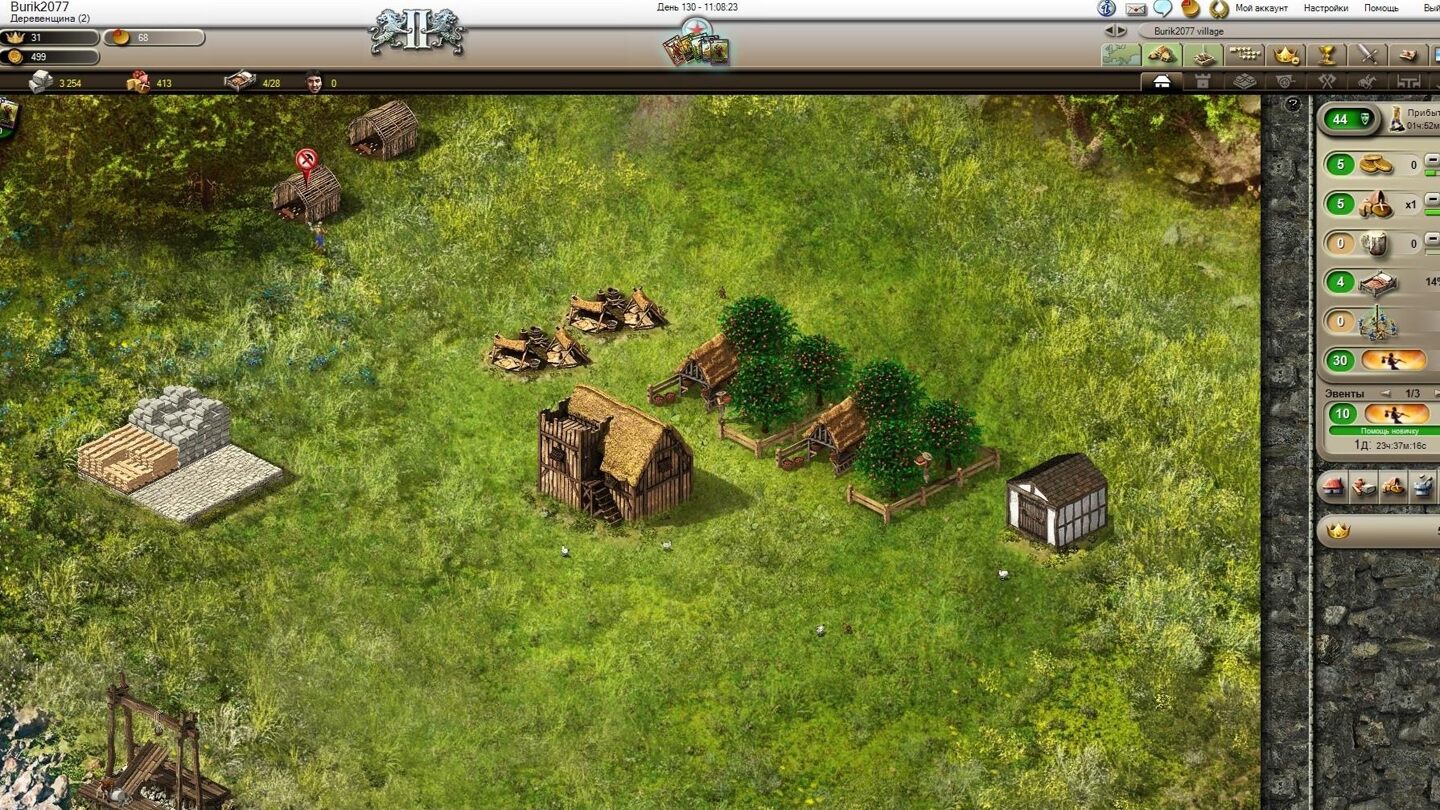
Honor is multiplied for feasts, establishing contacts with neighbors, right judgment, clever management of the estate, successful transactions, any help to allies and protection of the weak. In short, for chivalrous behavior. Just like in the Middle Ages: without honor a man is nobody and his name is nothing. But all these mechanics are only the tip of the iceberg, because as you develop, you get several villages at once, your army allows you to make more daring forays, and titles open up an abyss of political machinations. All you need is patience - the game takes a long time to get going. Ideally, interaction with Stronghold Kingdoms looks like this: go in, make the necessary orders for buildings and technologies, take care of the unemployed, check what's going on on the map, fight or make peace with someone, and then forget about this strategy until the next day. You can't do anything fast here - feel the rhythm of life in a medieval backwater.
War and Peace
The main occupation of a good feudal lord is, of course, figuring out relations with other lords. The number of war and peace options depends on your title. A rural fool, for example, does nothing but develop a homestead. A freeman gets more activities, including clan activity and battles with neighbors. The squire, knight, and baron have their own level of activity, where it's not so much about controlling a castle as it is about controlling entire regions and countries on the map. The higher the level of manipulation, the greater the impact of the vassal system on gameplay. In other words, all users who have spent a lot of time in the game find themselves in a system of relationships where everyone has rights and responsibilities. Knights cannot refuse a duke who calls them to battle, but they are also free to collect tribute and command their subjects.
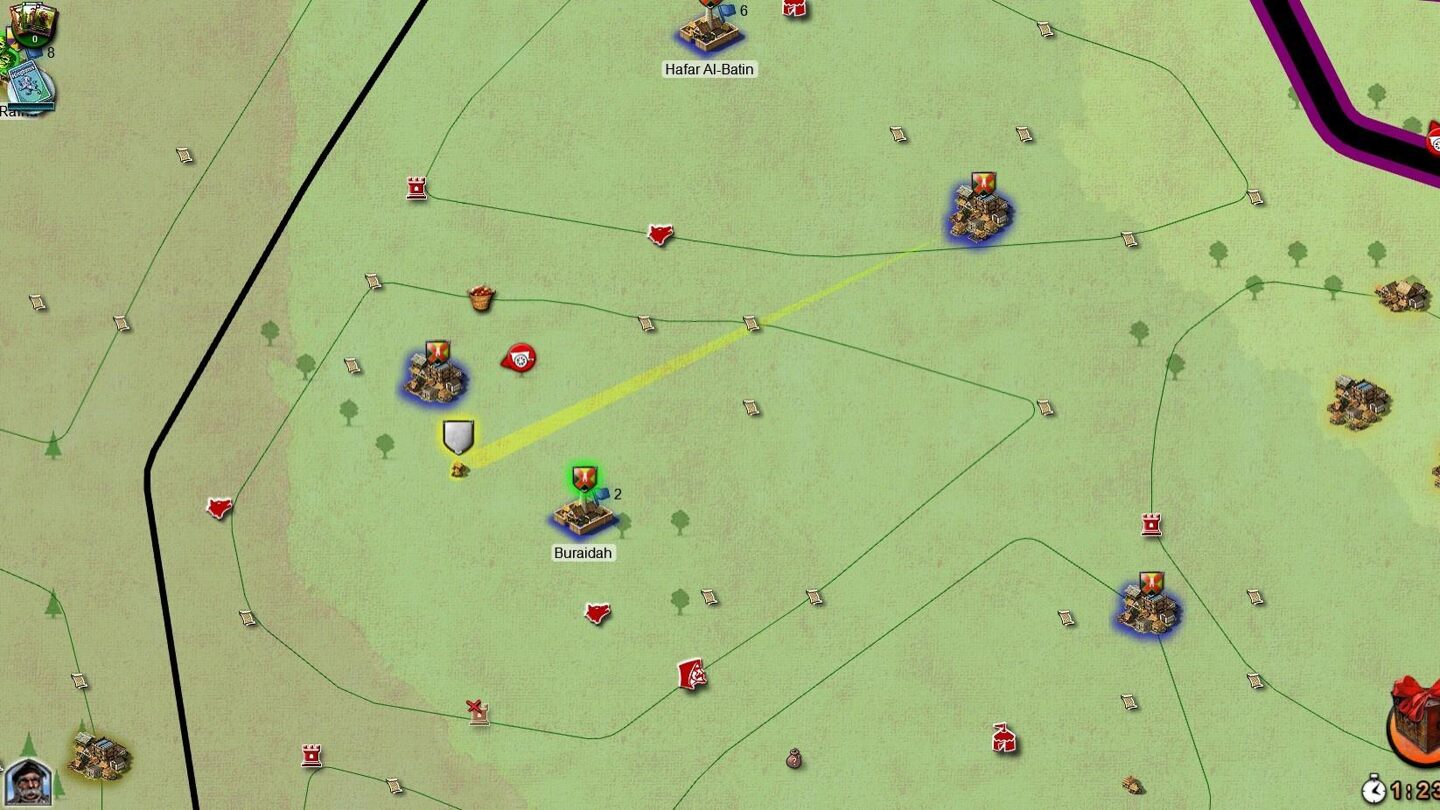
The easiest way to get into a fight is to raid your neighbor. To pull it off, just open the global map, select a target and assign raiders from the soldiers at your disposal. Only the chances should be evaluated soberly. You can't even take a wooden fortress with a crowd of peasants armed with pitchforks. But with a couple or three archers something will happen. Also in Stronghold Kingdoms there are swordsmen, pikemen, siege machines and the most powerful units - captains. The stronger a fighter is, the more effective he is at breaking down walls and ravaging villages. Fortification allows you to defend yourself against raids. For example, the construction of cellars will slow down the enemy to get the booty. It is interesting that every time you leave the game you can assign automatic actions: a special algorithm will conduct exploration, hire troops, crush enemies or trade with friends instead of you.
How does the pumping work?
The main part of the development is displayed in the ranks, or titles window. Here is a series of 22 levels from a hillbilly to a prince, and to move up this ladder allow points of honor, received for different actions. If you don't neglect tasks, actively chew on the granite of science and pay attention to the needs of ordinary people, you can grow from a hillbilly to a mortal in a couple of days. This progress happens not just by word of mouth - with each title you get, new technologies are discovered, and in addition you get points for research and some gold. That is, you can order new types of buildings, make more advanced weapons, explore resource deposits and hire more powerful troops.
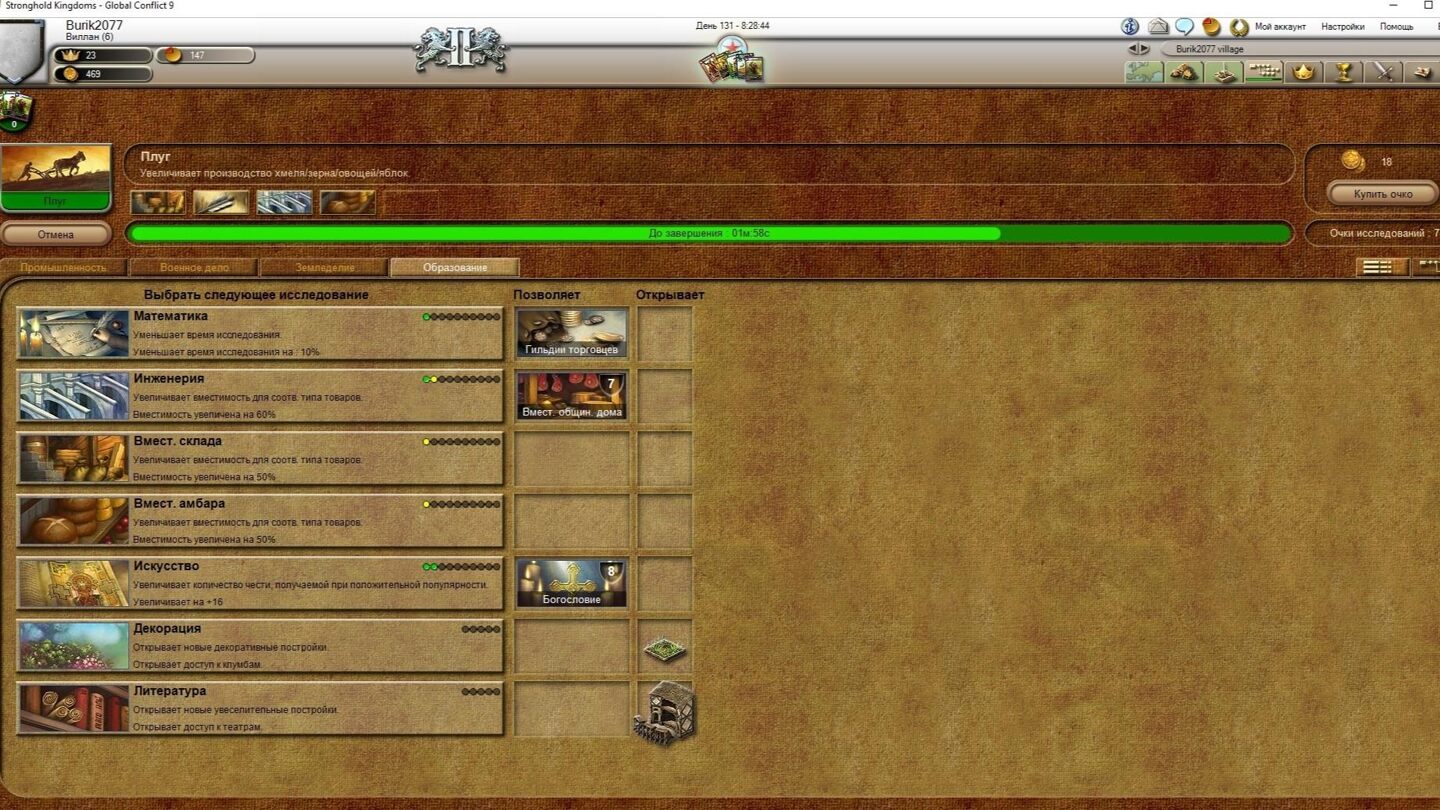
The next aspect of progression is the economy. Besides resources like stone, iron, food and wood, there are two main currencies - gold and crowns. You can buy a lot of useful things with both, but it's not so easy to get the latter, because crowns serve as an analog of real money and they are usually exchanged for cards with bonuses. With gold, the situation is a little easier - you get it regularly from taxes. But how much is enough? Let's say you need to expand your holdings and establish a new village. This will cost 10,000 - a sum that is unaffordable for a newcomer. If you increase the fees, the enthusiasm of the laborers will wane and their growth will decrease. This, in turn, will slow down all the development, resources will not be enough for buildings, among which may be those that increase the mood of the inhabitants. You have to find a delicate balance between the plans of the conqueror and the aspirations of the common people.
It is also worth bearing in mind that the joy of the peasants is a significant multiplier of honor points. The more satisfied people you have in your domain, the closer you get to the next title, and with it - access to new knowledge and buildings. That is, everything in Stronghold Kingdoms is interconnected. Although the subtleties still need to be learned through personal experience. As soon as you want to replenish your army with archers, you will immediately realize that you can't do it without the appropriate technologies, and then suddenly you will find out that the archer's workshop takes a lot of wood, so you should order more woodcutters' huts. But with no one to saw logs without laborers, you'll have to speed up the appearance of peasants by setting up an inn. You can't cut taxes, really! Rare MMO-strategy offers the same number of nuances.
It is also worth bearing in mind that the joy of the peasants is a significant multiplier of honor points. The more satisfied people you have in your domain, the closer you get to the next title, and with it - access to new knowledge and buildings. That is, everything in Stronghold Kingdoms is interconnected. Although the subtleties still need to be learned through personal experience. As soon as you want to replenish your army with archers, you will immediately realize that you can't do it without the appropriate technologies, and then suddenly you will find out that the archer's workshop takes a lot of wood, so you should order more woodcutters' huts. But with no one to saw logs without laborers, you'll have to speed up the appearance of peasants by setting up an inn. You can't cut taxes, really! Rare MMO-strategy offers the same number of nuances.
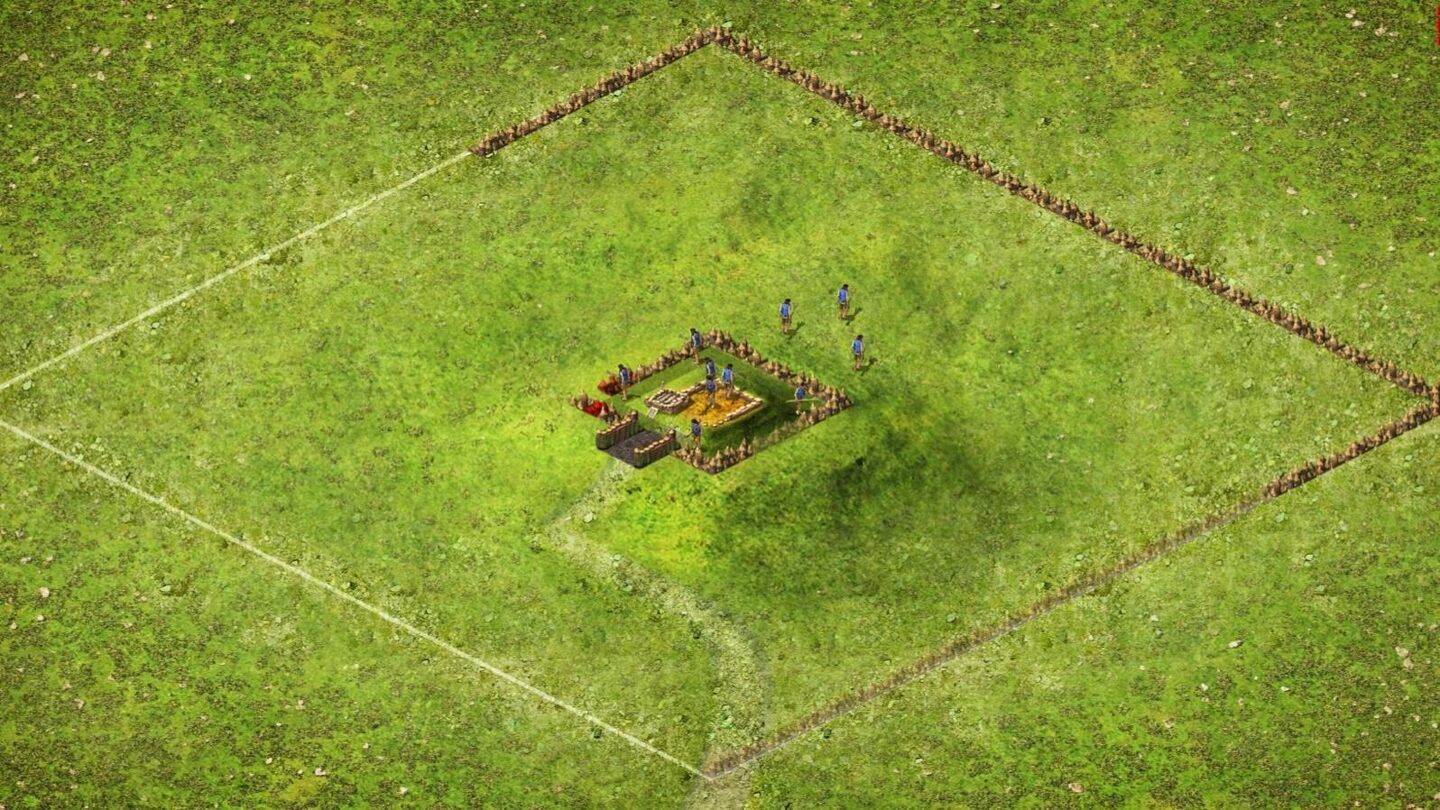
But there is no role-playing component here. There is no main character, no strength or dexterity points, no weaponization. The player himself acts as a hero, so he personally decides who to be. Whether to conquer neighbors with fire and sword, having created a large army, or to engage in peaceful construction and trade more often than to fight - everyone decides for himself. Perhaps the strategy could be decorated with RPG elements, but it is interesting as it is, especially taking into account the conditionally free distribution model.
Conclusion
Stronghold Kingdoms looks, of course, unassuming, and in addition scares away users with its slowness and overloaded interface. From the technical point of view it's a real greeting from the past - that's how RTS were fifteen years ago. Nevertheless, you should take into account the age of the game and take into account the fact that it is available for free. But the main thing about this strategy is its fascination. It is worth only to delve into the peculiarities of the development of personal possessions, to understand the intricacies of the feudal system, to achieve something, as the process will take you alive. A persistent gamer interested in the medieval era will get a lot of pleasure from Kingdoms.
Zarium. March 2024
Zarium. March 2024

